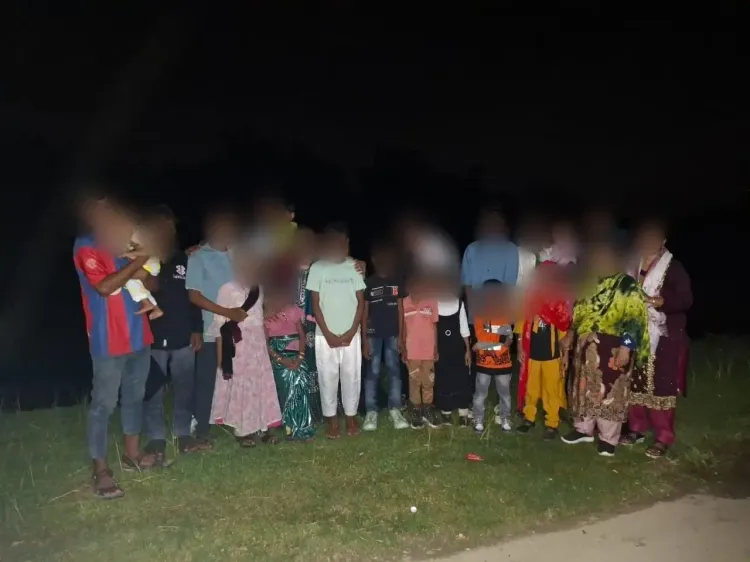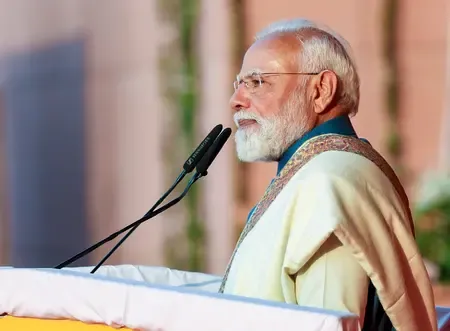Why Were 37 Bangladeshi Infiltrators Deported from Assam?

Synopsis
Key Takeaways
- 37 infiltrators were deported from Assam to Bangladesh.
- CM Sarma emphasizes strict measures against illegal immigration.
- Previous administrations are accused of harboring infiltrators.
- Security forces are actively monitoring border crossings.
- Economic conditions in Bangladesh contribute to illegal crossings.
Guwahati, Sep 23 (NationPress) Assam Chief Minister Himanta Biswa Sarma revealed on Tuesday that a total of 37 individuals from Bangladesh, including women and children, were deported back to their home country after illegally crossing the international border into India.
In a post on X, CM Sarma stated, "Farewell infiltrators; your time in Assam is over! A total of 37 uninvited guests have been PUSHED BACK to Bangladesh from the Sribhumi sector. Just a heads-up for everyone – all unwelcome individuals will receive the same treatment."
The Assam government has adopted a firm stance against infiltration from Bangladesh, with CM Sarma frequently warning about the potential threat to the demographic balance in Assam.
He accused previous administrations, particularly the Congress party, of providing refuge to these Bangladeshi infiltrators, claiming they have been encroaching upon the lands of the indigenous population.
CM Sarma also emphasized that while some infiltrators may have obtained Aadhaar cards, they are barred from registering on the voter list.
He asserted that there is no possibility for individuals to illegally cross the border and register on the voter list in Assam, as security forces have apprehended many who entered unlawfully and returned them promptly.
"Most infiltrators were detained around 5 a.m., and by 9 a.m., they were sent back to their country. In just two to three hours, they cannot enroll in the voter list," he explained.
Nonetheless, the Chief Minister believes in maintaining a heightened state of vigilance regarding this issue.
"We have resolved to implement various measures to identify illegal immigrants from Bangladesh, as there may still be some infiltrators who elude capture by security forces," he added.
CM Sarma suggested that individuals from Bangladesh are seeking refuge in India due to rising poverty in their country, exacerbated by recent turmoil following the exit of the Sheikh Hasina administration.
He also noted that, contrary to common beliefs, it is primarily individuals from the Muslim community who are attempting to cross the border illegally in search of employment.










